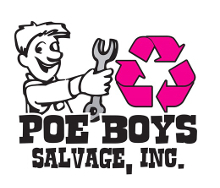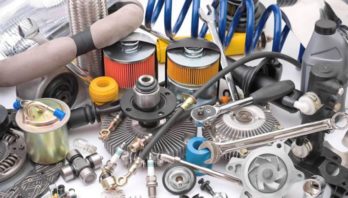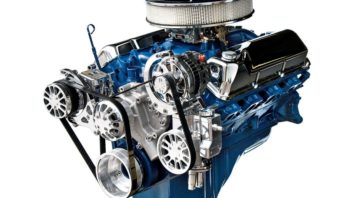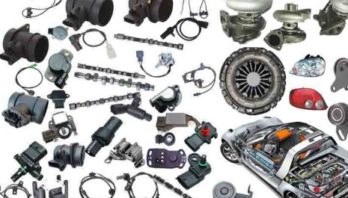Auto Recyclers, Repairers & Insurers Iron It Out
Three members of the collision repair industry, three auto recyclers and one insurance representative sat down together for an hour and a half at the 2013 Hollander International Innovation Summit for a panel discussion on the utilization of alternative parts. The panel focused on the use of recycled auto parts, problems procuring these parts and how the industries can work together to come up with a solution. Rick Tuuri, vice president of Industry Relations at Audatex who moderated the panel, summed it up at the end with a quote from the film Cool Hand Luke, “What we have here is a failure to communicate.” He stated his hope for the discussion is that a tangible solution can be developed to fix any issues or road blocks between recyclers and repairers toward the use of alternative parts.
The collision repair industry was represented by Dan Risley, the executive director of the Automotive Service Association (ASA); Darrell Amberson, vice president of Operations at LaMettry’s Collision and ASA chairman; and Tim Adelmann, executive vice president of ABRA, Inc. Don Sink, warehouse / returns manager for County Line Auto Parts in Kingsville, Mo.; David Gold, owner of Standard Auto Parts with locations in Niagara Falls, N.Y., Toronto and Ottawa, Ontario; and Kent Rothwell, president and CEO of Weaver Automotive spoke for the auto recycling industry. Scott Kohl with Liberty Mutual / Safeco Insurance represented the insurance industry. The panel had an overall positive view about the use of recycled or alternative auto parts. The repairers acknowledged that recycled parts are cost effective and are a better fit than aftermarket. Plus, sometimes using a recycled part, like replacing an entire front clip instead of a couple of brackets, can reduce repair time. “We need to use recycled parts because it’s the right thing to do,” said Adelmann, who helps manage ABRA’s 88 repair centers. Risley agreed, but noted the use of alternative parts is often tied to the repair centers’ relationship with insurance companies. Many insurance companies require repairers to use alternative parts, including aftermarket, for cost reasons. As Kohl clarified, “We use alternative parts to make sure we stay competitive in the marketplace.”
While the panel agreed the use of recycled parts is important, there are problems using them on the repairers end. The repairers outlined some of the top problems they find with recycled parts:
• The discrepancy of the condition of the part and how accurately it’s described
• The cost of going through the administrative process to procure the part
• Vendors who are not willing to price match
• Cycle time delays
• Gross profit discrepancies
The repairers said they want to make sure they will receive a quality part, which includes a clean part, good service and delivery. “Parts grading doesn’t determine service or delivery,” said Risley. “A ‘Class A’ recycling yard would include those things we can rely on in the service industry.” Risley asked the recyclers what a “Class A” would look like. Rothwell explained there are certi fications, like ARA’s Gold Seal and URG’s URG 8000, that recyclers can earn for their businesses.
“Those certifications get you in the door for carriers,” added Kohl. “We have preferred parts vender networks and we’ll go out and inspect them (if shops have problems with them.)”
Radius is an issue. Repairers explained they don’t want to use a part, just because it is the closest to their location. They want to use recyclers that they have a relationship with, the ones they can expect a quality part from. Amberson noted that many repairers are asked to rate these recyclers that come up on these searches, many of whom the shops don’t know. “I don’t want to grade salvage yards all over the country,” he said. Sink later responded to the problem and explained that shops shouldn’t be wary of radius when the recycler works in a network like Team PRP. Those recyclers work together to get quality parts to shops across the country.
Adelmann also asked the recyclers about the cost to return the part if they don’t want it, to which Gold replied, “There is very rarely any hassle to return a part,” he said. “We need each other. We work together and you’re going to see more of that.”
Tuuri asked the panel about pricing of alternative parts. Rothwell explained that better facilities use perfecting pricing, which he, and Gold and Sink confirmed, is the same as insurance pricing. When Amberson asked about list pricing, Gold admitted there were too many variables in the industry for auto recyclers to incorporate list pricing.
Amberson and the other repairers agreed that they are obsessed with cycle time. “Margins aside,” said Adelmann, “we need to fix more cars, more quickly.” The recyclers noted that some parts save cycle time, like the above-mentioned front clips, and many recyclers have elevated themselves on a grand scale to be able to deliver to their shops efficiently.
The panel was an interesting exchange between two parts of the same industry - that have worked together for years - but don’t seem to know a lot about each other. Rothwell said his facility, Weaver Automotive, hosts I-CAR training, which is a great step to build relationships, but Adelmann noted that repairers and recyclers need more of a forum to address the problems between them. Tuuri hoped the panel could return next year with a solution.
Hollander Brings Industry Together At Summit
For the first time in 15 years, Hollander, Inc. brought members of the auto recycling community together to help them stay ahead of the current technology trends and to promote best practices.
“Automotive recycling organizations that are able to use new technologies to streamline processes, reduce costs and get their recycled parts to the most consumers are going to be the ones that are most successful in the years ahead,” said Mary Moberg, senior marketing manager, Hollander. “ This summit is about helping today’s recyclers do just that.”
The 2013 Hollander International Innovation Summit was held in downtown Minneapolis, Minn. at the Marriott City Center. It featured 33 speakers on various topics surrounding industry trends, maximizing profits, growing your business and ecommerce. For example, Anson Tse, head of Parts & Accessories, eBay Motors, discussed what the company is doing to improve fitment, plus he gave an update on its OEM parts sales and eBay Garage.
Scott Kohl, AVP Claims Product, Liberty Mutual Insurance, gave attendees tips on how to get their parts in front of insurance estimators. Kohl specifically focused on challenges for auto recyclers, like the accuracy of parts grading and service. Kohl was also part of the Alternative Parts Utilization Panel.
Shannon Nordstrom and Craig Halverson from Nordstrom’s Automotive, Inc. gave an overview on how their company deals with online sales. Nordstrom’s Automotive lists more than 70,000 parts on eBay and HollanderParts. com. Some of Nordstrom’s and Halverson’s suggestions included pricing strategies, shipping parts, setting up online sales, customer service and return policies, plus using video and automated listings.
Attendee Darrell King, of Plainview Auto Salvage in Catoosa, Okla., is brand new to the auto recycling industry. He started working with his cousin, owner August Wakat, just four months ago. This was his first industry event. “We drove up to the conference and August and I talked about what we each learned at the event on the way home,” he shared. “Since we have made it home we have discussed things that were talked about up there just about every day.
“I personally got a lot of information on getting started with the eBay program and how others have had success with it. I have been working on our eBay store since I returned. It is coming along nicely.
“I did enjoy talking with all the people from the other yards and it was nice to see how everyone has some of the same problems,” he added. “I have not been doing this very long but it is a good profession and after meeting all the other people at the conference there are a lot nice people that I have met.”
Another feature of the summit was the technology test drive center where Hollander and its partners showcased their software. King said they ordered Buddy Automotive, Inc.’s booking buddy at the summit.
“As a leader in providing technology to the recycling industry, we at Hollander knew that we were in a unique position to be able to pull together many players in the automotive recycling industry,” said Moberg. Due to the success of this first year, Hollander is planning to have another summit next year.






